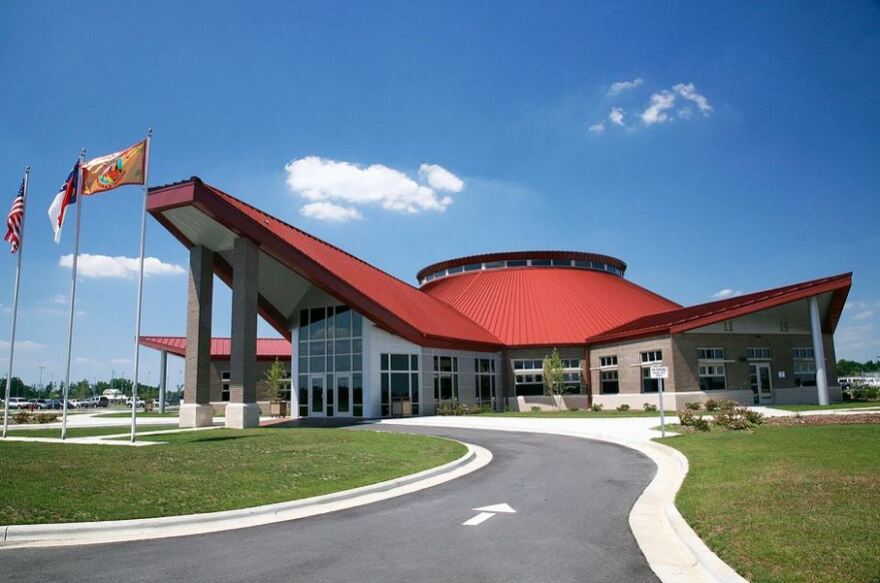The Lumbee of eastern North Carolina have long been identified as Native American by their neighbors and by the state. Even the federal government has acknowledged — they are Indian. But the approximately 55,000 Lumbee Indians don’t receive any of the same benefits as members of Native American tribes that have full recognition by the U.S. government.
In a recent Washington Post article, freelance reporter Lisa Rab of Charlotte explored the background of Lumbee identity and tribe’s quest for federal recognition. Rab spoke with "All Things Considered" host Mark Rumsey.
Rumsey: What really is at the heart of this dispute over whether the Lumbee are or aren’t a Native American tribe?
Rab: There are a couple of different issues at stake. Some of them are legal issues and some of them have to do with race. The federal government recognizes them as Indian — and that is the term in the law — but does not provide them the sovereignty, land or benefits that are provided to other Native American tribes that are recognized by the federal government.
Rumsey: Those considerations involving race or other concepts – how does that play into making this determination about the status of the Lumbee?

Rab: That’s a good question because I think there’s room for debate as to whether or not race should play into the discussion. But in the case of the Lumbee, historically, it definitely has. Their heritage is mixed, and that has been used against them by government officials, and even by other tribes.
Essentially, the history of the Lumbee is that they are descended from a couple of different tribes, including the Cheraw tribe that settled along the Lumber River in the 18th century. Those tribes intermarried with whites and free blacks. So, the modern Lumbee are descended from those original settlers.
The federal government over the years has treated [the Lumbee] differently based on some pretty outdated notions about race, and some Jim Crow-era laws and policies. [The policies] basically said if you were Native American, it was okay to have white ancestry but it was not okay to have black ancestry.
Rumsey: Let’s talk a little bit about what’s at stake here for the Lumbee people. What are the benefits that come with full federal recognition?
Rab: There’s lot of different advantages. First of all, Robeson County, where many of the Lumbee live, is one of the poorest counties in the state and it had the highest violent crime rate in 2015. So, there’s a lot at stake for the community in terms of additional resources.
They could receive additional education resources, housing and health care through the federal government. They could have their own police force. They could stop their children from being adopted out of the community. They could have a voice when someone wants to build a natural gas pipeline through their community — they would have to be consulted.
Most importantly, they would have a government-to-government relationship with the federal government. In other words, recognized tribes are sovereign. So the government would have to treat them as such. Their land would be protected. Those two things are extremely important to the Lumbee.
Rumsey: What about other tribes? Have they supported or opposed the Lumbee efforts for full federal recognition?
Rab: Well, there are definitely some recognized tribes that have lobbied against the Lumbee, particularly the Eastern Band of the Cherokee, who live in the mountains of North Carolina. They have lobbied against recognition of the Lumbee for a variety of reasons — one of which is the concern that if you recognize 55,000 people, that’s going to take a big chunk of the Bureau of Indian Affairs budget. They worry that their share of the pie will be reduced.
Rumsey: Anything else that you gleaned from spending the time that you did there, researching this and getting to know the Lumbee people that stands out to you?
Rab: I think probably the biggest thing that many people notice when they go and spend any time in Robeson County is that — as one of the people in my story, Reggie Brewer, said — they know who they are. They are very clear about their identity as Native Americans. They are very proud to be Lumbee, very proud to be Indian. That is really not a question for them — it is part of everything that they do.
So, this debate is really one that goes on in the outside world because as far as they’re concerned, no matter what any government says, they are Native American and proud to be so.


